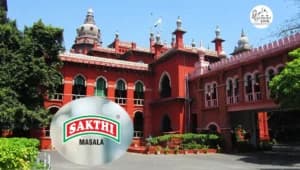The Supreme Court of India, on February 27, 2025, reaffirmed a crucial legal principle regarding the ownership of partnership property. In the case of Sachin Jaiswal vs. M/s Hotel Alka Raje & Others, the Court ruled that once a partner contributes property to a partnership firm, it ceases to be their individual property and becomes the firm's asset under Section 14 of the Partnership Act, 1932. Consequently, neither the partner nor their legal heirs can claim exclusive ownership over the firm’s property.
Background of the Case
The dispute arose when the legal heirs of late Bhairo Prasad Jaiswal claimed ownership of a hotel property after his demise. The property, initially purchased by Jaiswal in 1965, was later used to establish a partnership firm in 1972 with his brother, Hanuman Prasad Jaiswal. Over the years, additional partners were inducted, and the business flourished.
In 1983, Bhairo Prasad executed a relinquishment deed, transferring his rights over the land and the hotel to the partnership firm, M/s Hotel Alka Raje. The relinquishment deed specifically mentioned that his legal heirs would have no claim over the property. Despite this, after his passing in 2005, his legal heirs attempted to claim exclusive ownership of the property.
Read Also:- Supreme Court Clarifies Judgment on Government Employee Increments Before Retirement
The partnership firm and its partners initiated a civil suit for a declaration of ownership and a permanent injunction against the legal heirs. The Trial Court, in its judgment dated December 22, 2020, ruled in favor of the firm, recognizing that the property was part of the partnership assets and that the legal heirs had no rights over it.
The legal heirs then appealed to the Allahabad High Court, which upheld the Trial Court’s decision. The High Court further clarified:
“The decree rendered by the Trial Court shall be read in favor of the firm, M/s Hotel Alka Raje, alone. The share of the partners, particularly that of late Bhairo Prasad Jaiswal, shall stand inherited by his legal heirs to the extent mentioned in the last partnership deed entered in accordance with law.”
Supreme Court's Observations and Verdict
Upon hearing the appeal, the Supreme Court bench comprising Justices Sudhanshu Dhulia and Ahsanuddin Amanullah dismissed the legal heirs' claims, affirming that the property belonged to the firm. The Court emphasized the following key legal principles:
1. Section 14 of the Partnership Act, 1932 : Section 14 states that any property contributed to the partnership firm becomes firm property unless a contrary intention is established. The Court ruled:
"When a partner contributes property to the partnership, it ceases to be their personal asset and becomes the trading asset of the firm. The contributing partner cannot claim exclusive ownership over it."
Read Also:- Supreme Court: Discharge Orders Should Not Be Stayed Without Exceptional Reasons
2. Precedents and Legal Standpoint : The Court referenced the landmark ruling in Addanki Narayanappa v. Bhaskara Krishnappa (1966), which held that property brought into a partnership becomes firm property, and no partner can exercise individual ownership rights over it. It also cited the Madras High Court’s ruling in The Chief Controlling Revenue Authority v. Chidambaram (1970), which established that no formal document is required to transfer individual property into a partnership—mere intent suffices.
“The property, inclusive of the land and building, became part of the firm’s stock once it was contributed. The evidence of Bhairo Prasad Jaiswal’s intention to contribute the property is clear.”
Read Also:- Ensuring a Sensitive Work Environment for Women Judicial Officers: Supreme Court's Judgment
Dismissing the appeal, the Supreme Court categorically stated:
"There is no scope for interference with the High Court’s judgment. The property is the firm’s asset, and the legal heirs of Bhairo Prasad Jaiswal have no claim over it."
Thus, the Supreme Court reinforced that contributions made by a partner to a firm are legally recognized as firm property, and no claim can be made by their successors except for their share in profits.
Key Takeaways
- A partner’s contribution to a firm becomes the firm’s property as per Section 14 of the Partnership Act, 1932.
- Legal heirs cannot claim exclusive ownership over partnership assets.
- No formal transfer deed is required to make an individual asset a partnership property—mere intention is sufficient.
- The ruling aligns with past Supreme Court and High Court judgments, ensuring clarity on partnership property rights.
This judgment sets a precedent in partnership law and serves as a guiding principle for business partnerships, safeguarding firms from ownership disputes arising after a partner’s demise.
Case Title: SACHIN JAISWAL Versus M/s HOTEL ALKA RAJE & OTHER















